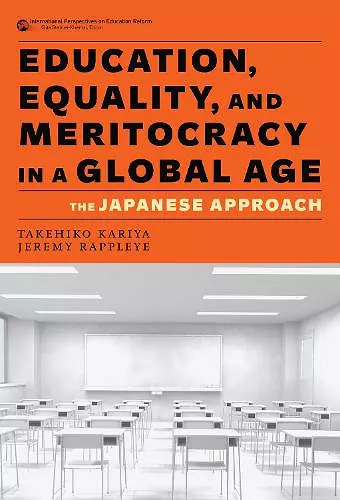Education, Equality, and Meritocracy in a Global Age
The Japanese Approach
Jeremy Rappleye author Takehiko Kariya author Gita Steiner-Khamsi editor
Format:Paperback
Publisher:Teachers' College Press
Published:19th Jun '20
Should be back in stock very soon

How has schooling functioned in the construction of meritocratic national systems historically? To what extent will these historical patterns and normative commitments continue in the new era of a global meritocracy? And ultimately, how can educators effectively balance the inherent tension between individual merit and standardized quality? Kariya and Rappleye explore the answers to these questions and more by focusing on the Japanese model, long recognized globally for being one of the most equitable and meritocratic systems in the world. Looking at the country’s educational history and policy shifts, the authors point to the important comparative lessons for sociology and education research. They show how the Japanese experience can inform global approaches to educational reform and policymaking—and how this kind of exploration can reinvigorate a more rigorous discussion of meritocracy, equality, and education.
Book Features:
- Rethink the complex relationships among meritocracy, education, and equality from a global perspective.
- See how nations beyond North America and Western Europe have developed different, more equitable approaches to improve outcomes for all learners.
- Explore the root causes of current problems in meritocracy through a look at the historical background of Japan’s postwar experience.
- Transcend prevailing stereotypes of Japanese education and society, and reconceptualize these differences as alternative approaches.
- Understand how pedagogical approaches and funding mechanisms are fundamentally entangled through the authors’ rich empirical detail.
ISBN: 9780807764084
Dimensions: 228mm x 152mm x 12mm
Weight: 340g
240 pages